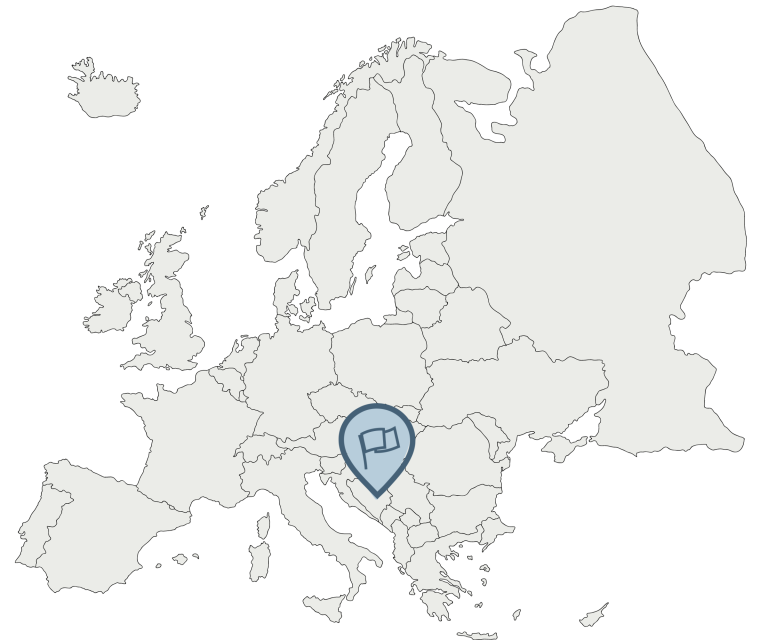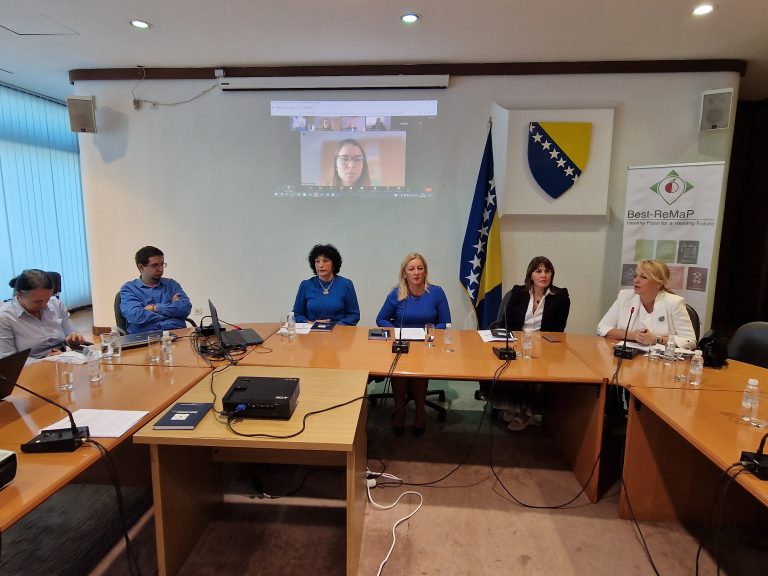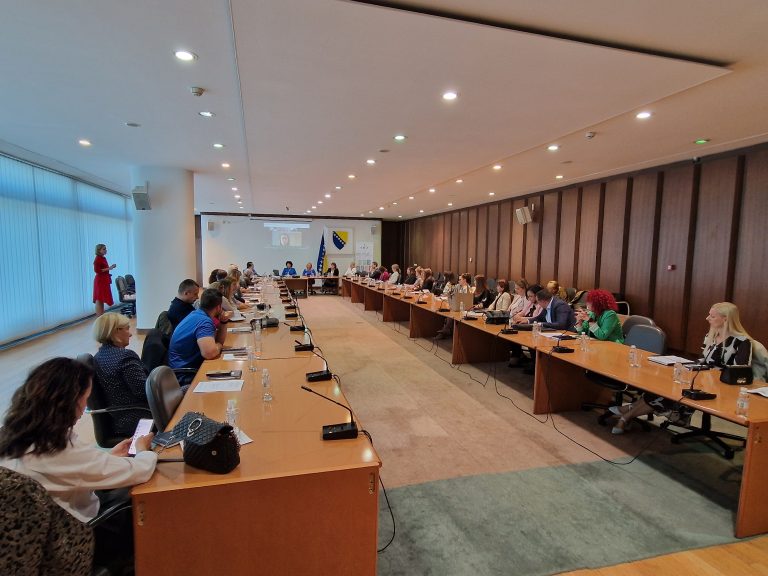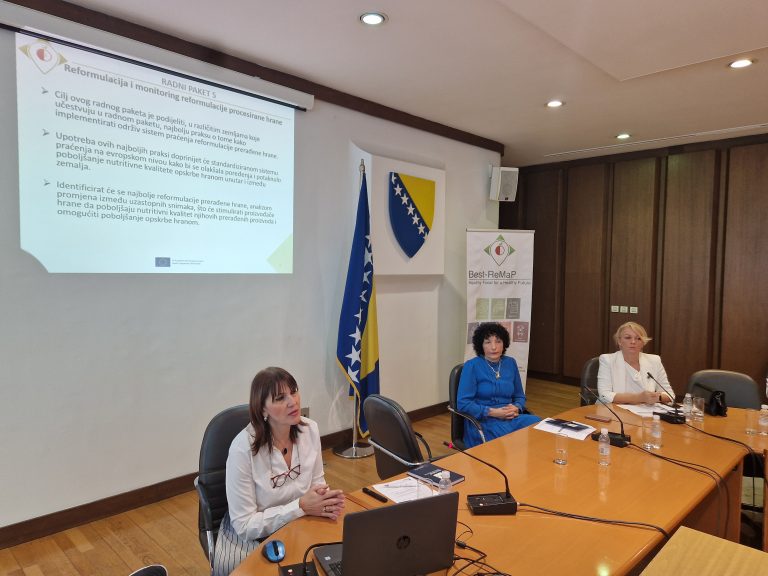
Local stakeholders forum event
on the Best-ReMaP Joint Action
Stakeholder forum in Bosnia and Herzegovina
September 09. 2023. Sarajevo
Background and Objective
Childhood obesity is on the rise in Bosnia and Herzegovina, posing serious health risks and straining healthcare resources. A stakeholder forum convened by the Ministry of Civil Affairs of Bosnia and Herzegovina to address this pressing issue by disseminating information on the activities and results of the Best-ReMaP Joint Action and setting clear objectives.
The forum’s core objectives included raising public awareness about childhood obesity, promoting multi-sector collaboration among experts in children’s nutrition and health, improving the nutritional quality of food for children, sharing best practices in kindergarten nutrition programs, showcasing successful international projects supporting children’s nutrition, emphasising the risks of marketing unhealthy foods to children, and identifying limitations in public food procurement.
Conclusions
In an endeavour to combat childhood obesity and promote healthier dietary practices, advocates in Bosnia and Herzegovina are embarking on a series of strategic actions.
One of their primary objectives is to align the country’s Law on Public Procurement with EU legislation, specifically pertaining to the procurement of food for public institutions. This alignment is expected to streamline the procurement process, making it more efficient and enhancing the overall quality and nutritional value of food served in schools, kindergartens, and other public facilities.
Collaboration with chambers of commerce in both the Republic of Srpska and the Federation of Bosnia and Herzegovina is aimed at introducing a Food Catalogue – based on the Slovenian best practice. This tool can help standardise the selection and procurement of food items, ensuring that they meet defined nutritional standards.
Advocates are actively engaged in defining both mandatory and recommended criteria for food procurement in public institutions. Their efforts also extend to advocating for legislation that restricts the advertising of energy-dense and nutritionally poor foods, particularly when targeting children.

The content of this website represents the views of the author only and is his/her sole responsibility; it cannot be considered to reflect the views of the European Commission and/or the European Health and Digital Executive Agency (HaDEA) or any other body of the European Union. The European Commission and the Agency do not accept any responsibility for use that may be made of the information it contains.



